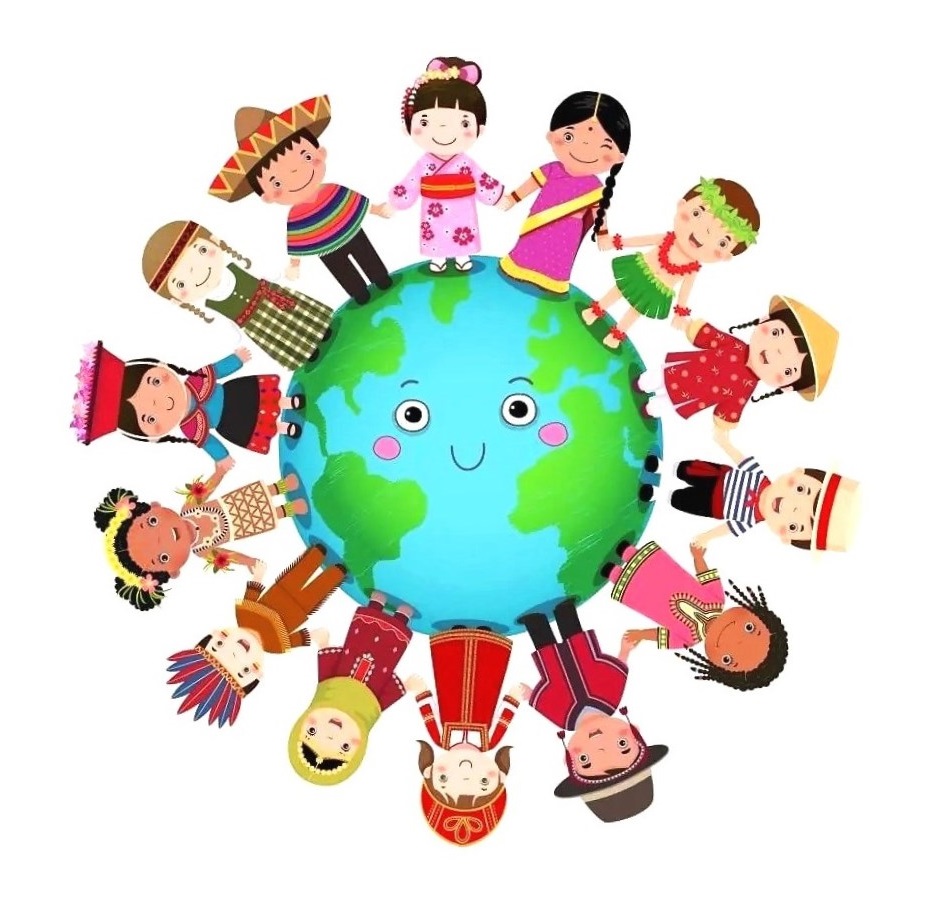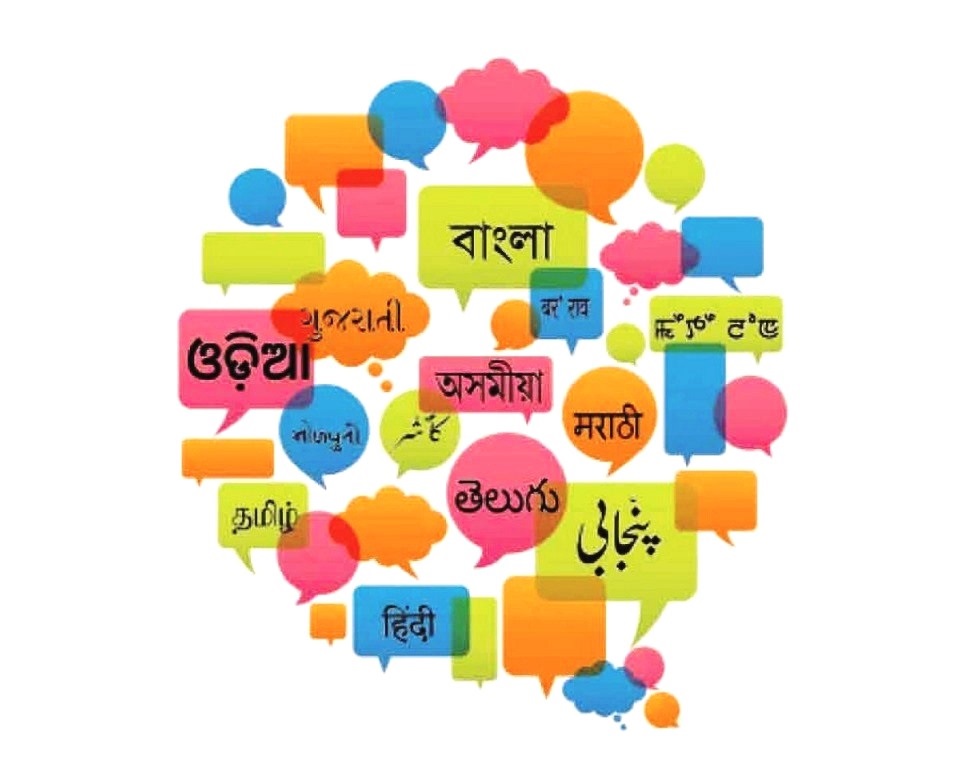Language education is like a tricky tightrope walk. It’s all about being able to communicate with people from all over the world while also preserving our own unique cultures. In India, the education system has a framework called the Three Language Formula, which is significant. It’s about ensuring children learn English while also not forgetting their regional languages. In this blog, we will discuss the importance of respecting different cultures when learning languages. We will also provide tips on how to do it correctly, so you can excel in English while staying connected to your language, culture, and heritage.
❖ Understanding the Cultural Sensitivity of Language Education
Cultural sensitivity in language education is all about being sensitive, aware, and respectful of different cultures when we learn any language that might be foreign, local, or regional. Imagine learning a new foreign language, such as Spanish or French. It’s not only about memorizing words, enhancing vocabulary, and understanding syntax, or following grammar rules. Nope! It’s also about understanding the culture behind the language. Every language has a specific origin, that it is connected to a particular culture. By learning about that culture, we can communicate more effectively and prevent misunderstandings that may lead to disasters.
For instance, suppose you’re learning Spanish. You may discover that in some Spanish-speaking countries, people greet each other with a kiss on the cheek. However, in other countries, a handshake is preferred, particularly in professional settings. A kiss on the cheek may be too personal and objectionable. Therefore, if you meet someone from a Spanish-speaking country, youyou will know how to greet them respectfully based on their culture.
Being culturally sensitive in language education means we respect and appreciate cultural differences. This approach helps us avoid accidentally offending or making someone feel uncomfortable. Moreover, it’s beneficial to learn about various traditions, celebrations, and ways of life! This approach is not only good for social well-being but also for personal and mental well-being.
Cultural sensitivity in language education involves being aware of and respectful towards the diverse cultures, values, and identities associated with the languages we learn. This means understanding how language can shape our identity and creating an inclusive environment that values diverse ways of speaking.
Regarding the Three Language Formula, it is crucial to respect different cultures. We must strike a balance between using English or other global languages, which are essential for communication and employment opportunities, and preserving our regional languages. Regional languages are significant as they are an integral part of Indian culture. They showcase the unique traditions and identities of each region.
When learning a new language, remember to immerse yourself in its culture as well. This will enhance your language skills and enable you to become a global citizen who can connect with people from diverse backgrounds.
❖ Integrating English while Preserving Regional Languages
We understand the significance of learning English, right? It’s super important because it’s a language that’s spoken all around the world. However, we must not overlook our regional languages. We should incorporate English into our lives while simultaneously preserving our regional languages. It’s about achieving a balance.
Bilingual education programs are an excellent idea as they combine English with local languages. This enables students to become proficient in both languages. It’s like having a superpower to communicate with people worldwide while maintaining a connection to your own culture. Thus, you can explore the world while remaining true to your roots!
Including cultural content from different languages spoken in different regions of India in English language classes can help us understand and appreciate the rich cultural heritage of our country. This way of teaching not only makes learning more interesting but also makes us proud of our own language and culture. Also it will provide the medium of exposer to express our cultural heritage on global platform.
When English-medium schools introduce regional languages’ literature and arts, it helps us understand different cultures better. We get to explore the unique ways people express themselves through art and writing in various regions. This exposure to different cultures broadens our minds and teaches us to respect and appreciate diverse identities.
❖ Challenges and Solutions
It’s super important to have enough stuff for teaching and learning any language. That means making really good learning stuff, finding really good teachers, and making sure everyone feels comfy using learned languages in school.
It is important to teach teachers how to mix English with local languages and be respectful of different cultures, especially in India. Through special training, teachers can learn all the skills they need to ensure everyone feels included and comfortable in the classroom.
Encouraging people in your neighborhood to join language education programs can strengthen and popularize regional languages. When the community supports and participates in these initiatives, it can help create resources like books and activities to learn languages. We can also organize fun events and projects that celebrate the awesomeness of having different languages.
❖ The role of the English language in a multilingual society like India
English language plays a crucial role in India, where people speak many different languages. It helps us all communicate and understand each other better. Like a superhero, English bridges the gap between different languages and saves the day. It’s a magical key that unlocks doors to new opportunities and connects us to the rest of the world. In this big melting pot of languages, English brings everyone together and makes life a whole lot easier, like a good and loving kid.
English is crucial in India because it enables people from different languages to communicate, learn, and access information from all over the world. It’s like a special language that connects everyone. However, we shouldn’t forget about the other languages either! They’re equally important because they help us preserve our culture and sense of belonging.
❖ Conclusion
Finding the right balance in language education is very important. We need to understand that English is a big deal worldwide, but we also got to respect the cool mix of languages and cultures we have in India. The Three Language Formula helps us bring English into the picture without forgetting about our regional languages. It reminds us how important it is to be respectful and understanding of different cultures when we learn languages.
If teachers respect and appreciate different cultures and help students use English along with their own languages, they can make a school where students feel strong and ready to explore the world. They can also stay connected to their own culture. This mix is important because it makes language learning more interesting and helps maintain the diversity of our society, allowing us to take pride in our different languages and cultures.
As we explore the exciting world of language learning, IIMT University is providing a comprehensive student development through its emphasis on high-quality English language instruction. By providing top-notch English language teaching, IIMT equips students with essential communication skills that are vital for their professional success in a globalized world. Through interactive classroom sessions, language labs, and immersive learning experiences, students refine their English proficiency, enhancing their confidence and articulation abilities. This approach enhances not only academic performance but also cultivates vital soft skills such as critical thinking, teamwork, and leadership. It empowers students to excel in diverse personal and professional contexts, thereby shaping well-rounded individuals poised for great success in the modern world.
At IIMT, we work together to find a perfect balance that celebrates our connection with the world and our amazing Indian culture. We always help students become proficient in English while still staying true to our Indian roots.
Author: Dr. Bharti Kumari,
Assistant Professor, CoE.
To learn professional English, click here.

















